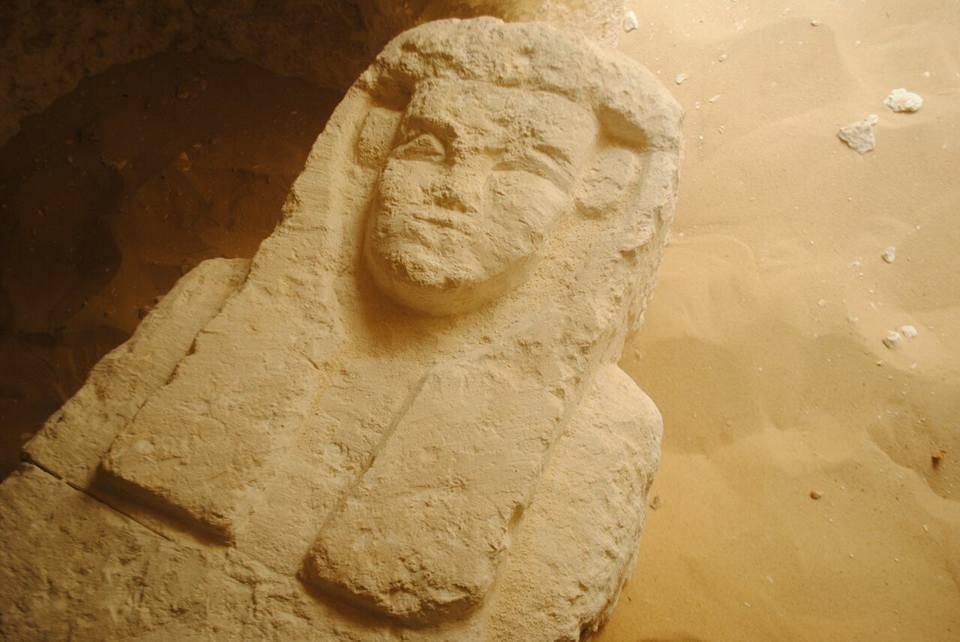2,000 year old tombs discovered in Egypt
First discovery of female and child remains at al-Kamin al-Sarwahi site points to wider use of tomb network than previously thought

Three tombs dating back 2,000 years have been newly discovered in southern Egypt, the ministry of antiquities has said.
The finds were uncovered in al-Kamin al-Sarwahi in Minya province, hidden down deep burial shafts.
After careful excavations, in one tomb four sarcophagi were found which had been carved with human faces.
Another contained six burial holes, including a child’s.
“These tombs were part of a large cemetery for a large city and not a military garrison as some suggest,” lead archaeologist Ali al-Bakry said, citing bones and other evidence which pointed to the presence of “men, women and children of different ages”.
“This was the first time to find a burial of a child at the Sahrawi site,” Mr Bakry said.
The authorities think the area was used over a large time period. Clay fragments suggest the tombs date between the 27th Dynasty, founded in 525BC, and the Greco-Roman era, which began in 332BC.
al-Kamin al-Sarwahi has been the subject of archaeological exploration since 2015. That year, 20 tombs in a series of ancient catacombs were discovered.
Dr Ayman Ashmawy, head of the ancient Egyptian antiquities sector at the ministry of antiquities, hailed the new discovery as “very important.”
More work is underway at the site to discover its secrets, a statement from the ministry said.
Subscribe to Independent Premium to bookmark this article
Want to bookmark your favourite articles and stories to read or reference later? Start your Independent Premium subscription today.

Join our commenting forum
Join thought-provoking conversations, follow other Independent readers and see their replies